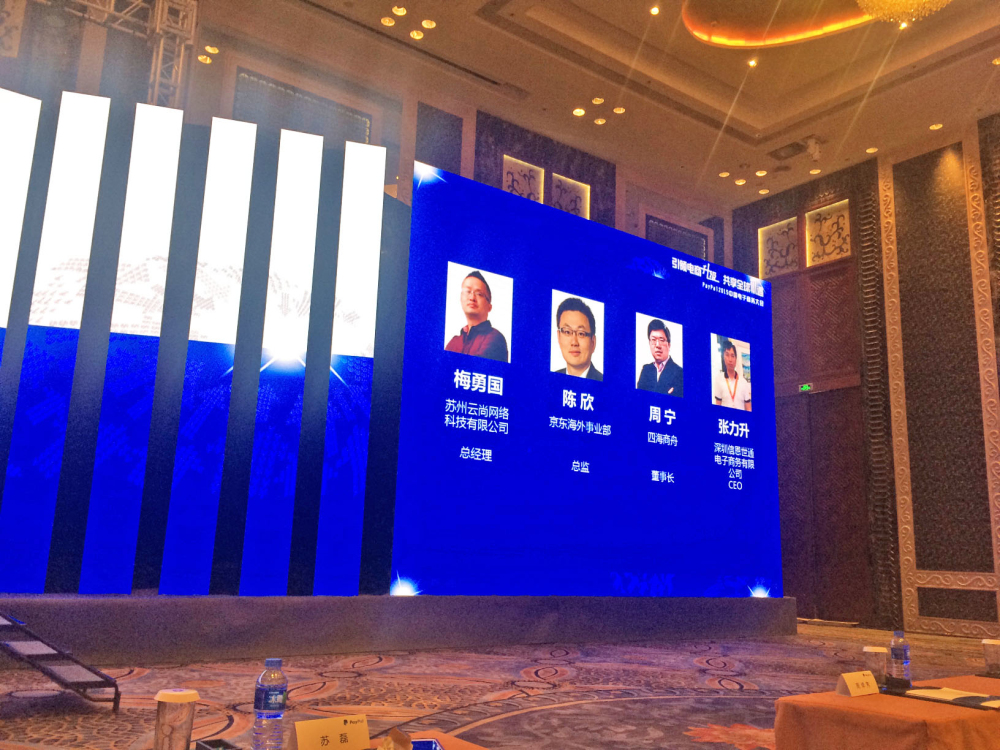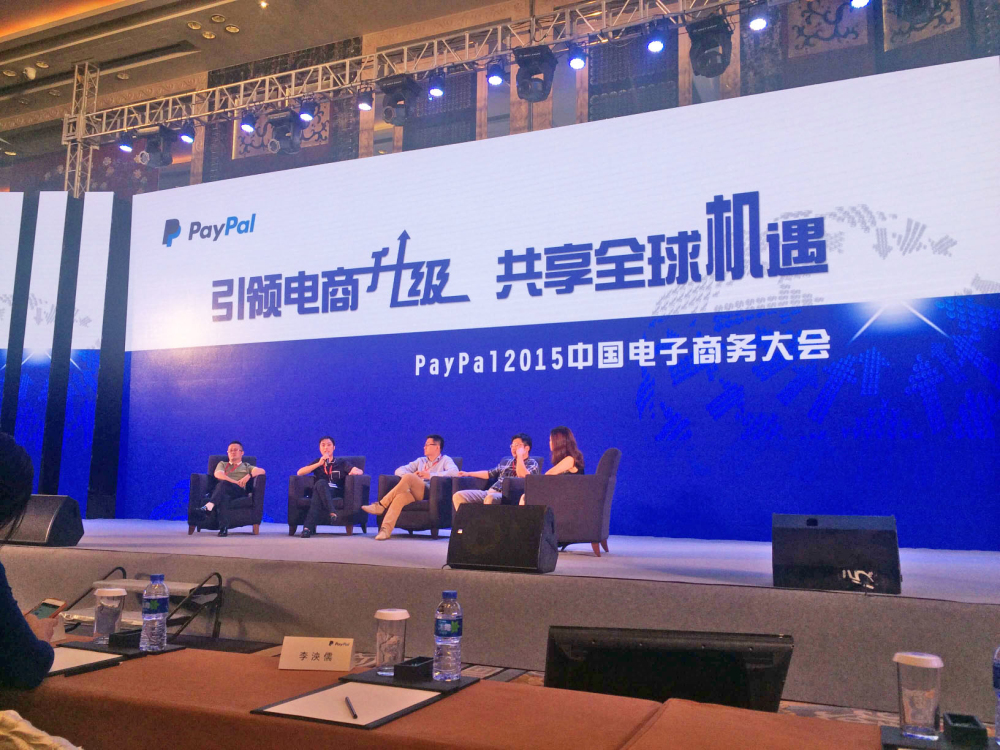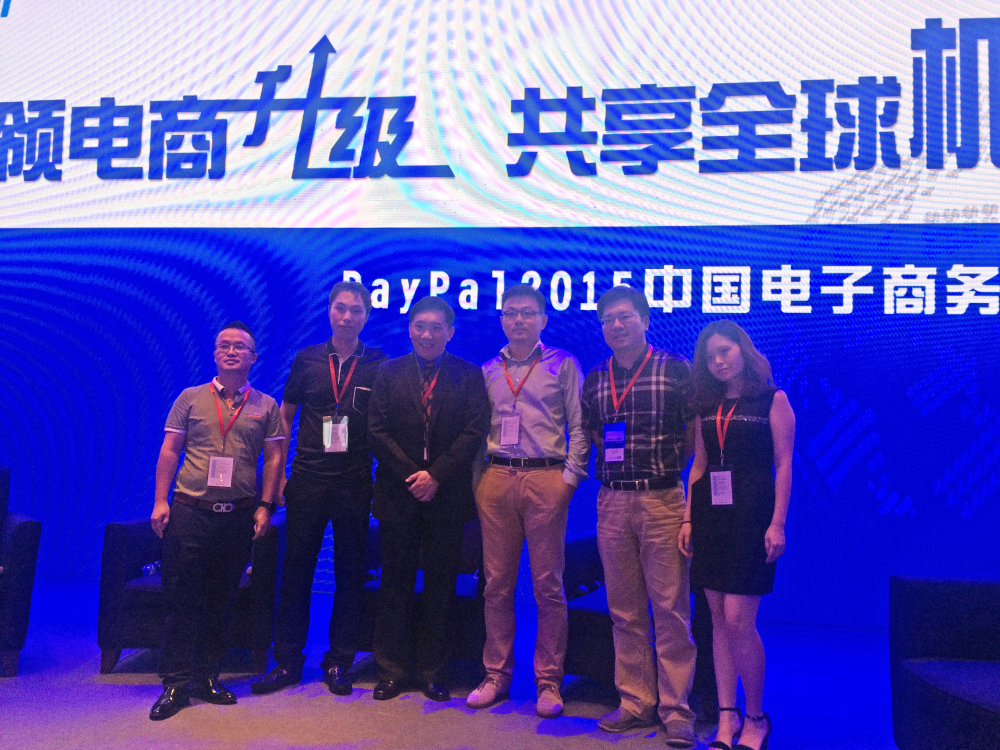September 17th, the online payment leader PayPal held the fourth annual Cross-Border e-commerce Conference in Shenzhen, China, bring together more than 800 large and small sized foreign trade companies, government representatives and industry expert to explore the new market of global cross-border E-Commerce trends, new opportunities, and jointly promote the growth of China’s Cross-border E-Commerce sector. PayPal launched the conference “PayPal Biz+” innovative solutions, aimed at B2B2C (supplier companies → foreign companies → overseas consumers) potential export model, leading E-Commerce supplier upgrades, sharing global opportunities.

ChinaDivision founder and CEO Ethan Chang, a “dark horse”, was invited to participate the conference and share thinking about the cross-border E-Commerce development on the conference:
The impact of mobile cross-border E-commerce
Cross-Border E-Commerce business presents three major trends: mobile, social and vertical. “breakthrough” has become a hot word in the field of mobile E-commerce. As to E-Commerce companies, they notice mobile E-Commerce is the trend of future, so does ChinaDivision. Ethan Chang highlighted 4 key characteristic of mobile shopping: First, the consumers’ shopping habit has changed and recommendation is the king; The second is that the consumers use fragmented time to browse, and easy to make a purchase; the third is vertical integration, vertical platforms are easier to win customers. So we mainly share products on mobile, pushing attractive products to the home page. In western business theory there is a famous saying: Numbers never lie, – we found that the growth of mobile orders have not grew in the same pace with users and revenue form mobile devices, conversion rate on mobile is still lower compare to PC. Users’ feedbacks gave us a very important message, “Mobile devices make it possible to check orders and shipping status anytime, anywhere. But speaking of placing orders, I prefer PC. Because it is easy to do it on computer, the screen is larger, I see the products more comfortable. ” So we think mobile can’t replace PC in the short term, But mobile ecommerce is really a primary growth factor for cross-border E-Commerce.
CEO of ChinaDivision (second from left) at the meeting talked about how cross-border E-commerce companies use government policy of Shenzhen
Recently the government introduced a number of rules and regulations, including:
Establish the integrity mechanism, increase industry subsidies, help cross-border corporate in financing, establish the FTA, reduce tariffs and simplify the approval workflow and so on. These policies has reduced the cost of cross-border goods, accelerated flow of goods, on the other hand, as the country’s policies encourage companies to target overseas markets which is indeed a reassurance to them. ChinaDivison welcome these policies, because they would ease the pressure on cross-border E-Commerce industry. We like this saying: fall in love with government, but do not marry the government. Because enterprises’ development more rely on their own. Based on our experience of cross-border B2B platform ChinaDivision, we think completive edge of cross-border E-Commerce companies mainly lies in the low labor cost and information asymmetry. But with the rise in labor costs, fiercer and fiercer competition, Branding will become a trend in the future export E-Commerce. Import E-Commerce has huge potential. Chinese government encourages its development; E-Commerce Export market is very large, national policy encourages it. If you want to make best use of national policy, the cross-border corporate business of import and export need to develop together. So we launched our B2B business ChinaDivision in order to help cross-border E-commerce companies to build their brand by providing exc fulfillment service.

VIP guests posed for pictures (from left of the second: ChinaDivision founder Mr. Zhang Lisheng)
The impact of exchange rate on cross-border E-commerce and how to response
When the RMB appreciates, import business has absolute advantages, while devaluation happens, exports do have a great advantage. Facing exchange rate, after five years we may not see any business only do export or , or import. Those who survive in the cross-border E-commerce are the ones do both export and import. In two cross-border E-Commerce dispatch model, “first trip, overseas warehouse” model will be greatly affected by the exchange rate, because of the need to store goods in large amount, “Foreign Direct Mail” model can stay calm. It mainly involve non-standard products based, consumers are less sensitive to price, and more likely to compare overseas direct mail price with the domestic counter. Overseas direct mail operation is also more flexible, exchange rate effect can quickly be reflected in commodity prices, but has little effect on the purchase. So overall, changes in exchange rates hardly impact overseas direct mail. As long as the appropriate increase in foreign exchange reserves, targeted use of financial products to hedge the exchange rate, so that to reduce the affect of exchange rate to a minimum. If 2014 is the first year of cross-border import E-Commerce, then with the sharp depreciation of the RMB and introduction of the policy on cross-border export ECommerce,then 2016 is expected to become China’s first year of cross-border export E-Commerce.
ChinaDivision was invited as guest speakers of the conference. It is the reflection of long-term close cooperation between Paypal and ChinaDivision, as well as PayPal’s affirmation to ChinaDivision’s achievements.

In July, China Southern Region Leader of PayPal Sean had visited the headquarters of ChinaDivision. ChinaDivision’s efforts and achievements are much appreciated by Paypal on constantly optimize and improve the user’s payment process, refund experience and so on. ChinaDivision will continue cooperate with PayPal, Alipay and other big names, hoping to better serve our customers, and lay a solid foundation for global branding.